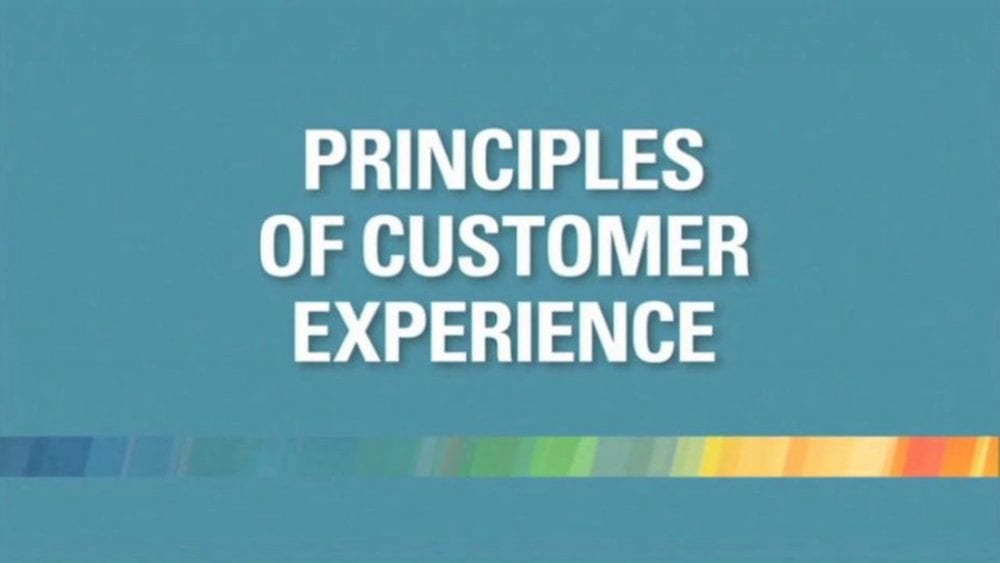by Mike Guiffre, Special to Ticket News
How difficult do you think it is in 2017 to keep customers? Better yet how difficult is it to increase revenue and renewals from your current customer base? As it turns out it’s not that difficult at all. If you are paying attention.
Per Groove HQ 86% of customers will pay more for a better experience. They also add that the number one most important factor in customer loyalty is reducing the customer’s effort. In fact, the article states “Contrary to conventional advice that loyalty is built on WOWing the customer, research suggests that the critical goal should be reducing customer effort. Make life easier for your customers, and they’ll have a great reason to stick around”.
In sports and entertainment, one misconception is who we are competing against for customers when it comes to ticket sales. Now, we are not competing against other teams or venues in our market. For consumers, because of technology, we are up against what else can take up a customer’s free time. For businesses, we compete against anything that provides an overall ROI back.
Take into account this statistic coming directly from Salesforce, “70% of customers say technology has made it easier than ever to take their business elsewhere”. This ease of technology created direct competition with some entities such as when Apple overtook music sales or Uber and similar companies destroyed the outdated and anti-customer focused taxi industry. In sports, we are not immune because unlike buying songs or hitching a ride, the direct competition is more widespread.
As stated, for consumers it is pretty much anything that can take up your free time. Netflix is a competitor. Pickup basketball is a competitor. A restaurant is a competitor. Video games are competitors. And so on. For businesses, it is similar but slightly more limited as it related solely to ROI on their spend.
Why then as an industry are we making it so damn hard for our customers to attend a game or to transfer tickets with strict limitations on how tickets are received originally, the timing of when they can be transferred or how they are managed overall? The technology most certainly exists for options and ease of use. Those same technologies can almost all but eliminate transfer fraud and stolen tickets while at the same time capturing the same data as the more intrusive platforms. The only reason to limit a season ticket holder or purchaser’s capabilities is complete control of the product, the customer, and pricing. Any hint otherwise is a PR push designed to drive a positive solution to a problem that can easily be solved in another fashion.
I had this discussion with a team industry peer of mine I have known for some 15 years. He stated something to the effect of (because I am an executive on a secondary retail site): “it only bothers you because it’s more difficult to resell tickets on your site when limitations are put in.” My response was “That is not true, but a fair point so let’s examine: the customer is reselling either to offset costs or because they can’t attend a certain game(s). If you make it too difficult and they can’t, I am out roughly 10% or less of their purchase total for one game. You are out $10,000 when they cancel”.
Point being, they are still the team’s customer and they took all the risk by providing you upfront payment. As I wrote about here, pricing off secondary site listing is a failure because it’s a small percentage of the actual gate, as well as once the market shifts through cancels the model blows up. By making it more difficult to be a customer you are hurting your bottom line the most.
I then added, “and why are you focused on resale, are these policies not ones that also affect every one of your customers including businesses, for every single game”?
My second point is that if these policies are in effect to control the market and limit resale they are causing issues for all customers every time they interact with the system. Whether it be in attendance or transferring per ticket per game. A fan still must go through the same process to transfer tickets to their kids, neighbor or partners, just as a business must have their clients jump through hoops to simply receive usable tickets. And if its multiple tickets to customers that are attending but arriving separately the task will be annoying if not daunting.
Remember the original statistic. 86% will pay more if it makes life easier and do not concern themselves with the wow factor. Walker Info adds that by 2020 consumer experience will overtake price and product as the number one differentiator. Current examples confirm that. Nobody ever said using an app was cheaper than taking a cab. But the experience is better, and it’s not even close. Making things more difficult is costing market share.
I think then it’s time we reexamine how we feel about the ticketing customer and start remembering the basics. The point of them forking over money to you is to be entertained and to watch a sporting event or concert. Make the environment the wow factor. Make the games fun again. The attempted wow factor and amenities that make up a trend of calling season tickets “memberships” is not driving sales. However, the effort consumers must put into to enjoy your product is costing you.
And while we have focused on retention and your current customers, let’s look at finding new ones. Not surprisingly a similar concept prevails. 70% of consumers admit that their purchase intent increases if the content presented to them is personalized. While on that topic almost the same number, 71% to be precise, prefer ads tailored to them. On the B2B front, you are likely to increase sales by utilizing a targeted approach to companies over outbound techniques. Furthermore, 70% of B2B customer touch points come through the customer service of the organization.
The common theme in both consumer and B2B marketing is the reduction of effort from the client. This matches with the service end. The consumer, in general, expects to be able to find information at ease. They also expect the marketing directed at them to be relevant. Or it’s a waste of their time and your money.
Previously we have seen as an industry some friction in reaching out to customers because of the contribution of TV contracts and how teams are tied to them. Content that other brands could publish on multiple platforms and use to cost-effectively drive up interest or sales had to be turned away by teams as they tried to funnel everything to TV rights holders. Highlights, statistics, produced content and similar were all pushed to one controlled medium. The leagues lost out on a lot of free digital advertising.
While we are finally starting to see some changes in efforts to be more consumer friendly but the limitations come within a team’s potential marketing reach and budget. For example, Facebook is a new tool for MSG to move Rangers and Knicks tickets as well to post video highlights for the NFL. The downside is the is the lack of understanding and investment needed to capitalize on these avenues and make an easier experience for consumers for which they crave.
Providing the content or purchase capabilities is not enough especially with the amount of data that Facebook can provide to you. In short, consumers are not going to search out your page every time. They need relevant options presented to them. Facebook offers almost 2,000 data points to you to market to including virtually all activity on your phone (yes, you permitted them). The point here is not to give a marketing lesson on Facebook advertising. Now that these tools exist how can you best take advantage of them to create a happy customer. One that can easily see tickets they are interested in or highlights that they will watch? Expecting them to find your content is not friction-less. And advertising the wrong content to them is not either.
With these data points invest in pure target marketing based on the data points to drive customer satisfaction and then revenue. For example, Facebook can tell you if someone lives in your city is an active fan of a visiting team, how much money they have spent on related merchandise and ticketing, what other pages like and geolocation of where a person has been. Instead of hoping they find the buy button on your page, or promoting highlights to them of other games – present them with limited options such as tickets and highlights to the team of their choice only. That is what the customer wants, and that is what will drive your revenue.
Those statistics do not lie. Current consumers expect a friction-less experience and respond to solicitations or content that is relevant to them. Not acknowledging this and focusing on a handful of potential issues is the core reason of declining attendance and other marketing issues in the ticketing industry. Change can be scary but necessary. Let’s embrace it.
Mike Guiffre is the Vice president of Sales for TicketCity. This article is an updated version of one he originally published on LinkedIn. Mike can be reached at [email protected], on Linkedin, or on Twitter @mjguff.







